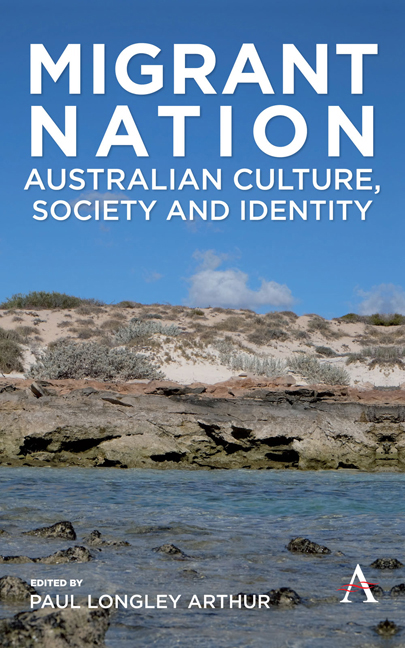Book contents
- Frontmatter
- Contents
- List of Figures
- 1 Introduction: Transcultural Studies in Australian Identity
- 2 Remembering Aboriginal Sydney
- 3 Files and Aboriginal Lives: Biographies from an Archive
- 4 Writing, Femininity and Colonialism: Judith Wright, Hélène Cixous and Marie Cardinal
- 5 The Staging of Social Policy: The Photographing of Post-War British Child Migrants
- 6 Writing Home from China: Charles Allen's Transnational Childhood
- 7 Australian? Autobiography? Citizenship, Postnational Self-Identity and the Politics of Belonging
- 8 A Nikkei Australian Story: Legacy of the Pacific War
- 9 Displaced Persons (1947–52) in Australia: Memory in Autobiography
- 10 Between Utopia and Autobiography: Migrant Narratives in Australia
- 11 Vietnamese–Australian Life Writing and Integration: The Magazine for Multicultural and Vietnamese Issues
- 12 Heroes, Legends and Divas: Framing Famous Lives in Australia
- List of Contributors
- Index
7 - Australian? Autobiography? Citizenship, Postnational Self-Identity and the Politics of Belonging
Published online by Cambridge University Press: 10 May 2018
- Frontmatter
- Contents
- List of Figures
- 1 Introduction: Transcultural Studies in Australian Identity
- 2 Remembering Aboriginal Sydney
- 3 Files and Aboriginal Lives: Biographies from an Archive
- 4 Writing, Femininity and Colonialism: Judith Wright, Hélène Cixous and Marie Cardinal
- 5 The Staging of Social Policy: The Photographing of Post-War British Child Migrants
- 6 Writing Home from China: Charles Allen's Transnational Childhood
- 7 Australian? Autobiography? Citizenship, Postnational Self-Identity and the Politics of Belonging
- 8 A Nikkei Australian Story: Legacy of the Pacific War
- 9 Displaced Persons (1947–52) in Australia: Memory in Autobiography
- 10 Between Utopia and Autobiography: Migrant Narratives in Australia
- 11 Vietnamese–Australian Life Writing and Integration: The Magazine for Multicultural and Vietnamese Issues
- 12 Heroes, Legends and Divas: Framing Famous Lives in Australia
- List of Contributors
- Index
Summary
In the last week of March in 2011, Mohammed Asif Atay took his own life while at the Curtin Detention Centre in Western Australia (ABC 2011). A 19-year-old refugee from Afghanistan, Mohammed had withdrawn unobtrusively from the group of men who were sitting around outside talking together. He went to his room, locked the door and hanged himself. Despite the efforts of journalists and refugee advocates, we know little else about Mohammed. We do know that he was from the Hazara community, a minority religious and ethnic group in Afghanistan that has endured ongoing persecution from other Afghani groups. He was the only one of his family to come to Australia; as is often the case, his extended family had probably pooled their resources to get one of their kin to safety, to establish a bridgehead for the others to follow. Mohammed arrived by boat with other refugees at Christmas Island, about 1,500 kilometres northwest of the Australian mainland, and he was subsequently transferred to the Curtin Detention Centre. Altogether, he spent ten months in detention in Australia. His was the sixth death in an Australian detention centre in seven months. Having fled his home, and having survived the journey by both land and sea to Christmas Island – an act requiring remarkable courage, determination and stamina and carrying the added burden of his family's hopes – what eroded Mohammed's resilience to the point that he could go no further? How was his self-belief reduced to that point when the extinction of self seemed the only option?
Postnational identity – the repercussions of mass migration and globalization in the second half of the twentieth century on the relationship between people and nation states – has received considerable attention. The focus of much of this attention has been on citizenship and its attendant rights within the nation state (Shafir 1998; Kastoryano 2002; Calhoun 2007). Not unexpectedly, these debates have plotted the rights and protections along a spectrum, from libertarian ideas of individual freedoms at one end, to communitarian rights and protections offered by nation states on the other. Others have mapped cultural and ethnic tensions within nation states.
- Type
- Chapter
- Information
- Migrant NationAustralian Culture, Society and Identity, pp. 119 - 136Publisher: Anthem PressPrint publication year: 2017



